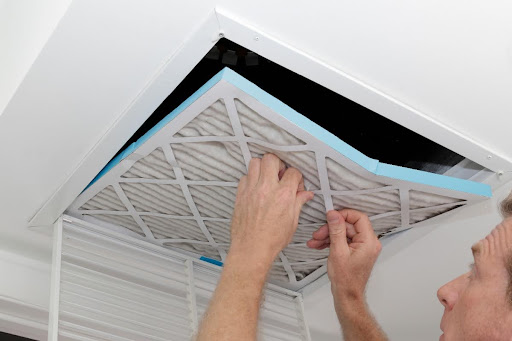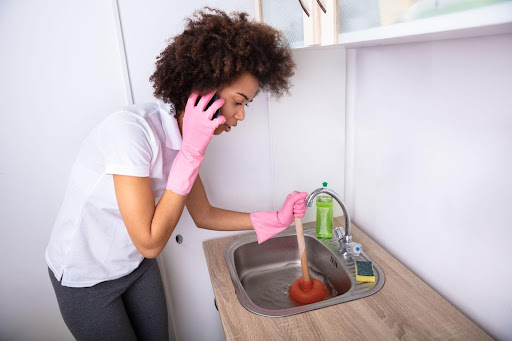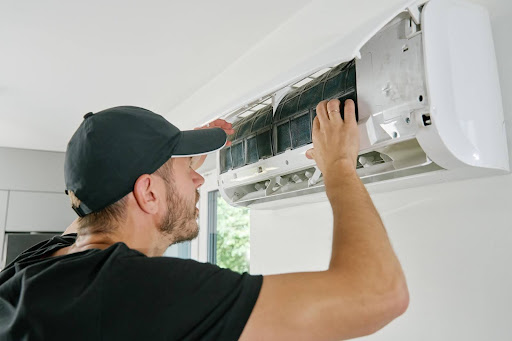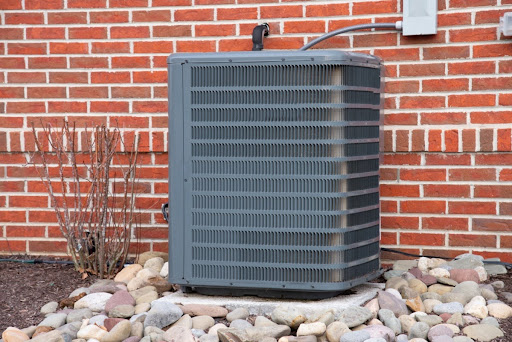How HVAC Systems Affect Indoor Air Quality

Most people don’t think much about the air inside their homes. After all, you can’t see it — so it’s easy to forget it’s even there. But you can definitely feel it. If the air in your home is clean, it’s easy to breathe, smells fresh, and keeps your family comfortable. On the other hand, if it’s full of dust, pet dander, or other indoor air pollutants, it can cause allergy flare-ups, respiratory discomfort, and even long-term health hazards.
Your home’s HVAC system can play a considerable role in all of this. It doesn’t just heat and cool your home; it also affects the air quality in ways you might not realize. Understanding how HVAC systems affect indoor air quality can help you make smart choices to keep your home a healthier place to live.
How HVAC Systems Affect Indoor Air Quality
Your HVAC system is constantly moving air through your home. That means it can either help clean the air — or make it worse. Here’s how different components of your system impact indoor air quality:
Air Filters: Your First Line of Defense
Indoor air quality and HVAC systems are tied together through the use of filters. Air filters trap airborne particles like dust mites, pollen, pet dander, and mold spores. But if they get clogged, they can’t do their job. Dirty HVAC filters can actually make air quality worse by allowing pollutants to circulate throughout your home. Regularly replacing or upgrading your filters is one of the easiest ways to improve indoor air quality.
Air Ducts: The Hidden Pathways for Air
Your home’s air ducts carry warm air and cool air from your HVAC system to every room. But over time, dust, debris, and even mold growth can build up inside. If your ducts aren’t clean, they can potentially spread pollutants instead of removing them. Professional duct cleaning can help keep your indoor air fresh and healthy.
Humidity Levels: Striking the Right Balance
Humidity plays a big role in indoor air quality. Too much moisture can lead to mold growth, while dry air can cause respiratory discomfort and make it easier for airborne particles to circulate. Your HVAC system helps regulate humidity, and you can also add humidifiers or dehumidifiers to maintain healthier indoor air quality.
Ventilation: Bringing in Fresh Air
Good ventilation is key to reducing indoor air pollution. If your home is too sealed up, pollutants like carbon monoxide, volatile organic compounds (VOCs), and cooking odors can get trapped inside. Mechanical ventilation systems, exhaust fans, and even something as simple as opening windows when the weather permits can help improve air circulation and bring in more air from outdoor sources.
The Role of HVAC Maintenance
Routine maintenance is essential for keeping your HVAC system running efficiently and preventing poor indoor air quality. A neglected system can circulate dust, bacteria, and even mold spores, leading to a polluted air environment inside your home. Changing filters, cleaning coils, and checking for leaks can help maintain good air quality.
Common Indoor Air Pollutants and Their Sources
Many things inside your home can contribute to poor indoor air quality. Some of the most common indoor air pollutants include:
- Dust and Pet Dander: Especially problematic for allergy sufferers.
- Mold Spores: Often caused by excess moisture and poor ventilation.
- VOCs (Volatile Organic Compounds): Found in household cleaning products, furniture, and building materials.
- Carbon Monoxide: A dangerous, odorless gas from gas stoves, heating systems, and other fuel-burning appliances.
- Airborne Particles From Cooking: Cooking odors and smoke can linger without proper ventilation.
By improving ventilation and maintaining your HVAC system, you can reduce exposure to these pollutants and create a healthier indoor environment.
Ways to Improve Indoor Air Quality With Your HVAC System
Now that we’ve covered how HVAC systems affect indoor air quality, you might be wondering what steps you can take to enhance it. If you’re noticing dust buildup, musty smells, or more allergy symptoms at home, your HVAC system might need some attention. Here’s how you can use it to improve air quality:
Upgrade to High-Quality HVAC Filters
Basic filters catch larger particles, but high-efficiency filters can trap smaller allergens like dust mites and pollen. Look for filters with a higher MERV rating to help improve air quality.
Schedule Regular HVAC Maintenance
Routine tune-ups help prevent excess moisture, clogged air ducts, and other issues that can affect IAQ. A professional technician can check for hidden problems that might be affecting your home’s air.
Use Air Purifiers and Cleaners
Air purifiers and cleaners can help remove airborne particles that your HVAC system might miss. They’re especially helpful for homes with pets, allergy sufferers, or high levels of indoor pollutants.
Don’t Forget About Energy Costs
A clean and well-maintained HVAC system doesn’t just improve air quality — it can also help reduce energy costs. Clogged filters and dirty air ducts make your system work harder, which leads to higher bills. By keeping everything clean and in good shape, your system will run more efficiently, keeping both your air and your wallet happy.
Need Help Improving Your Indoor Air Quality in Coachella Valley, CA?
Your HVAC system is one of the biggest factors in your home’s air quality. If you want cleaner, healthier indoor air, professional maintenance and air quality solutions can make a huge difference.
At All Seasons Air Conditioning, Plumbing & Heating, we’ve been helping homeowners breathe easier since 1997. Whether you want to learn more about our professional indoor air quality solutions or need air conditioning services in Coachella Valley, CA, our expert team is here to help.
Now that you know how HVAC systems affect indoor air quality, why wait? Give us a call today to schedule your indoor air quality services in Coachella Valley, CA, or one of the nearby areas, and start breathing cleaner, fresher air in your home!





